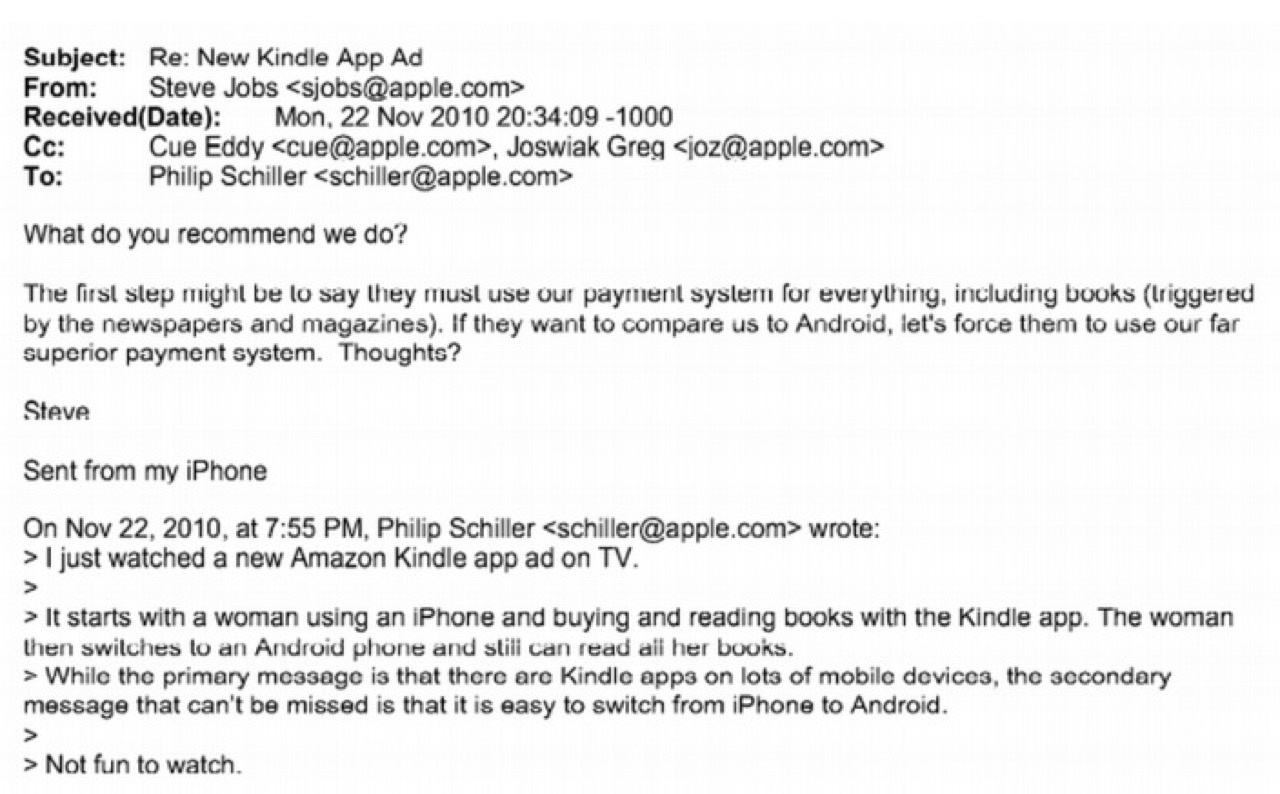For me, one of the more frustrating aspects of iOS is the inability to buy Kindle books from within the Kindle or Amazon Apps. I do a fair amount of reading on my iPad, and I’d probably do more if it were easier to buy books via my bookseller of choice. Instead, I buy on my Paperwhite or the Amazon website.
As you’re probably aware, this is an artificial limitation. While Amazon is a highly visible target, this restriction applies to all eBook sellers on the iOS App Store.
To me, this restriction comes across as a mean-spirited attempt to force iBooks down Apple customers’ throats. It leaves the impression that their eBook store can’t compete on a level playing field. Most importantly, it’s an example of Apple sacrificing user experience to make a buck, which is unusually out-of-character for them.
As part of the Department of Justice’s revised eBook price-fixing injunction proposal they included an email exchange between senior Apple staff and Steve Jobs that sheds some more light on this decision.

This segment of the DOJ’s proposal was quite interesting:
As Apple’s counsel told the Court, “[o]ur view is that if there is a hyperlink in Amazon.com, to a particular book, we get from a defendant publisher, we get 30 percent. The same way if there is a hyperlink to buy shoes, we get 30 percent across the board.” (Tr. at 62). These statements are incorrect. Apple misrepresented the factual circumstances surrounding this matter, including how the App Store operated and operates. It simply is not true that Apple receives a 30 percent commission from all retailers for all goods sold through apps. To use Apple’s counsel’s own examples, one can buy shoes today on an iPad using a Zappos app … similarly, one can buy countless goods on an iPad, including physical books, directly from an Amazon.com app … In both of those situations, the purchases do not go through Apple’s payment system, and Apple does not receive a 30 percent commission on these physical goods
As an Apple and Amazon customer, it’s always seemed like as long as I wasn’t buying iBooks, this part of my user experience on iOS wasn’t just unimportant to Apple but instead worth actively hindering. From someone who has invested tens of thousands of dollars into the Apple ecosystem, I think that’s total bullshit.
In that regard, this segment of Phil Schiller’s email really stuck with me:
While the primary message is that there are Kindle apps on lots of mobile devices, the secondary message that can’t be missed is that it is easy to switch from iPhone to Android.
Not fun to watch.
If the only way to hang on to your customers is to make it hard for them to switch to a competitor, you’ve failed to make a product that is compelling on its own.
Apple’s philosophy here deeply diverges from my own, and it’s shocking to see it laid so bare.
